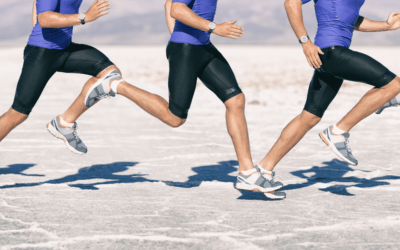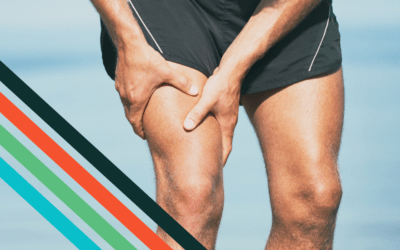Which smartwatch should I buy in 2024 to get the most out of my endurance training?
What watch do I need to buy to get the most out of my endurance training?
As a coach this is a question that I get asked a lot by my athletes, and my answer is always more along the lines of “Well it depends”…
There are a few different questions to ask yourself when you are starting to look for a watch.
- What is my budget? Can I afford a watch right now?
- Does it integrate fully with Training Peaks? (Training Peaks is the most common and best coaching software for endurance athletes)
- What metrics are important for me to get from the watch?
- How long of a battery life do I need for my training/race/adventures?
- How good is the GPS Accuracy?
- What features are on my nice-to-have list?
After reading this blog, if you still need help with your training, injury rehab, or performance, reach out to us at Vital Strength Physiology HERE. Let’s dive in.
Budget
First of all, let me say that you can absolutely start out with your endurance training without having to make the investment in a specific watch for your training. Most athletes will have a smartphone which can be used to give us coaches all of the info we need to assess how your training is going. You can do this by simply downloading one for the watch companies apps like Garmin, Suunto , Coros or Polar etc. for free and they have a function which allows you to record your activity. These apps will sync to the platform Training Peaks which we use to coach you. So if you can’t afford a watch then don’t stress about it! Going this route won’t give you all the fancy integrations with training peaks where your workouts show up pre-programmed on your watch but it will get the job done.
You may also be able to use the watch you already have. Training Peaks just announced a new integration with apple watch which you can read about here:
The Apple Watch is a great option if this is a watch you all ready own and it integrates fully with Training Peaks. The battery for the Apple Series 9 watch is around 18hrs with regular use including 45-90 min of GPS activity tracking so this is great for everyday training…BUT you will have to charge your watch everyday and it would not be suitable for longer distance events.
It should be noted that the Apple Watch does not support workout integration with Training Peaks when workouts are prescribed with RPE (rated perceived exertion, how a lot of training tends to be prescribed or adjusted). This is the way we prescribed workouts a lot of the time, so you would not have this functionality, which means that your planned workout would not show up in your watch for you to do. This doesn’t mean you can’t do it and record it for your coaches to see, it just means that you have to time your own intervals and workouts etc. it is not done automatically for you.

Does it integrate with Training Peaks?
Training Peaks is the platform that we use at Vital. To get the most out of your training you will want to have a watch which integrates fully with this platform allowing structured workouts to be seamlessly sent to your watch for you to use and for all of your training data to be sent to us to analyze.
Training Peaks supports a variety of watch brands including Garmin, Suunto, Polar and Coros. You will want to start your search looking into these different brands of watches. From there it is going to come down to your preference of features, the brand-specific user interface and the battery life which you require.
What Metrics does my coach need?
Most watches these days will come with all of the things that we as coaches would be interested in seeing like your pace/speed, heart rate cadence and power (for cycling). So as long as your watch has these things and reasonably accurate GPS then you are good to go, The rest is all bells and whistles.
At the time of writing this other metrics like HRV, training readiness, sleep etc. that are tracked by these smart watches are not all that useful mostly due to the fact that the way these watches calculate these things are hidden behind proprietary walls and they have been found to be not all that reliable in terms of determining your training readiness. Don’t feel like you need to spend more money on a watch to get these extra things.
Battery Life
How much battery life do you need in a watch? That is going to depend entirely on what you intend on using it for. You probably don’t need a top of the line watch with 80 hrs of GPS monitoring battery life to run your half marathon or marathon, but the longer battery life will come in handy if you are planning on doing 100 mile ultras or full distance ironmans.
The lower end of 20 hours of GPS tracking will do just fine for most events. One thing to consider is a longer battery life means you will have to charge your watch less throughout the week.
GPS Accuracy
Most watches out there are relatively accurate and will come with the option to enable two types of GPS at the same time for better accuracy like GPS and GLONASS.
The gold standard out there right now is to have two types of GPS systems like GPS and GLONASS combined with Dual Band. This allows for better accuracy when it comes to GPS tracking around high rise buildings and cliff faces etc.
The key thing when you are setting up your watch is that you set things up to have the most accurate GPS tracking with the shortest recording interval possible. This ensures that your coach is getting the most accurate data as most watches will have different GPS accuracy settings which you can adjust to increase battery life.
What Features are on the “Nice-to-have” list?
For trail running some nice-to-have features include:
- Barometer for elevation tracking during activities
- Colored maps for navigation
- “Find back” button in case you get lost you can retrace your steps
For triathlon you’re going to want to make sure that there is a multi-sport mode so you can switch sport types during your race with ease.
Other than that it is really up to you to decide what kind of display that you want, the look and size of the watch and anything else that you think would be suitable. Some individuals like the smaller, more minimalist look of the Coros watches and others like the maximalist look of some of the Garmin watches, for example.
One thing of note is that no matter what type of watch that you purchase if it comes with wrist based heart rate tracking that is not going to be accurate enough for running, so you are going to need to purchase a heart rate monitor chest strap or arm band to go with your watch to get the most out of your training.
What Features are on the “Must have” list?
For most endurance sports, the “must haves” are:
- Accurate GPS monitoring for accurate capturing of the outdoor distance
- As endurance coaches, we think a chest strap for more accurate heart rate monitoring is on the MUST list. If you want to train properly, this starts with accurate data collection, and wrist heart rate monitoring is just not accurate, and often involves daily charging
- A watch that displays the time so you know how long you’ve been ‘out there’! Thankfully, most watches have this feature!
Watch Comparison
Here are some charts to compare low, mid and high end watches from three prominent manufacturers. This is not an all inclusive list as there are some watches and manufactures not included.
Lower End Watches <$400
| Watch | Cost | Battery LIfe (GPS Recording time) | GPS |
|---|---|---|---|
| Garmin Forerunner 55 | $269.99 | 20 hrs | GPS, GLONASS, GALLIEO |
| Coros Pace 3 | $329.00 | 38 hrs | GPS, QZSS |
| Suunto | N/A | N/A | N/A |
Mid Range Watches <$700
| Watch | Cost | Battery LIfe (GPS Recording time) | GPS |
|---|---|---|---|
| Garmin Forerunner 265 | $599.99 | Up to 20 hrs (14 hrs max accuracy) | GPS, GLONASS, GALLIEO + DUAL BAND |
| Coros Apex 2/2 | $499.00 | Up to 60 hrs (25 hrs max accuracy) | GPS, GLONASS, Galileo, Beidou, QZSS |
| Suunto Race | $619.00 | Up to 120 hrs (40 hrs max accuracy) | GPS, GLONASS, GALILEO, QZSS, BEIDOU |
High End Watches >$700
| Watch | Cost | Battery LIfe (GPS Recording time) | GPS |
|---|---|---|---|
| Garmin Forerunner 965 | $799.99 | Up to 31 hrs (19 hrs max accuracy) | GPS, GLONASS, GALLIEO + DUAL BAND |
| Coros Vertix 2s | $949.00 | Up to 118 hrs (73 hrs max accuracy) | GPS, GLONASS, Galileo, Beidou, QZSS |
| Suunto Vertical | $849.00 | Up to 500 hrs (60 hrs max accuracy) | GPS, GLONASS, GALILEO, QZSS, BEIDOU |
Final Thoughts
There are a lot of watches to choose from. Something to consider is that having a more expensive watch is not required for you to train and race to your full potential. Consider the demands of the event that you are training for and select a watch that will meet those demands. Try not to get swept up in the noise of all the bells and whistles that are out there that monitor your training readiness etc. rely more on your own daily observations to make sound judgment on how you are actually feeling.
Needing more help? We offer FREE ADVICE here.

More About The Author
Rick Canning
Since 2015, Rick has provided science-based endurance coaching for athletes of all levels, specializing in trail running and ultra distances. With a background in engineering and certifications in marathon and ultra running, he brings a practical approach to helping athletes tackle ambitious goals, from personal bests to podium finishes. Rick has coached runners, cyclists, and triathletes, with notable successes like a 100% finish rate at the Capes 100 and guiding an athlete to complete the UTMB 160k. His philosophy emphasizes curiosity and sustainable training that fits into athletes’ lives, prioritizing their happiness.



